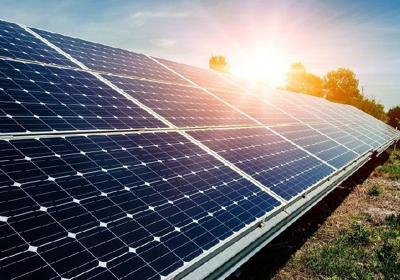OIL company Hess has said it will receive about US$275 million in cash and 115 newly issued shares in Hess Midstream Partners (HESM) as part of a proposed transaction announced by HESM.
Cash proceeds from the transactions will help fund its project in Guyana’s Stabroek block, where, along with China’s CNOOC, lead operator ExxonMobil has found more than sixbillion barrels of recoverable crude.
Under the terms of the proposed transaction, HESM will acquire Hess Infrastructure Partners (HIP), a 50/50 joint venture between Hess and Global Infrastructure Partners (GIP).
In the meantime, Russia’s Prime Minister, Dmitry Medvedev has said that Moscow’s relations with Cuba have been fully restored.
He says Moscow will help Cuba obtain oil and gas products, is developing a draft work plan for energy supplies to Cuba and, more generally, is willing to work closely with the Cuban government on a mutually beneficial basis.
The new relationship with Cuba was “pragmatic” and should be “mutually beneficial”.
He said discussions had focussed on development and cash deals concluded by large Russian companies relating to the railways, the sale of airplanes, the maintenance of Russian-built aircraft already in Cuba, metallurgy, a thermal power station, alternative forms of power generation and agriculture.
Cuba’s president, Miguel Diaz-Canel, is expected to travel to Moscow to meet President Vladimir Putin. Meanwhile, Suriname’s state-owned oil company, Staatsolie has said it has signed a production sharing agreement (PSA) for onshore Weg Naar Zee (WNZ) block with British-based oil and gas exploration company, Columbus Energy Resources (CER).
The two firms have signed a 30-year agreement under which a minimum exploration programme will be carried out on the 30-100 hectare block during the first seven years.
Suriname has not made any commercially-viable offshore oil discoveries so far, though investors remain optimistic given the six billion barrels of oil found by ExxonMobil in neighbouring Guyana.
Meanwhile, in Jamaica, president and CEO of the Jamaica Public Service Co (JPSCO), Emanuel Da Rosa, says the company is looking to increase partnerships with independent power producers (IPPs) in order to meet the country’s renewable energy (RE) objective.
He noted that the company has already forged agreements with “several entities, who sell electricity to us for distribution to our customers”.
The most recent partnership was with Eight Rivers Energy Company (EREC), with whom the JPSCO has entered into a 20-year agreement for the purchase of renewable energy (RE).
“We at JPSCO believe that the future of energy in Jamaica will be fuelled by partnerships like the one that exists between JPSCO and the Eight Rivers Energy Co. No single company is expected to supply all of Jamaica’s energy needs,” Da Rosa pointed out.
The country’s Ministry of Science and Technology has revealed that it is aiming to add 1,500 MW of new generation capacity over the next 20 years, through the newly-established Integrated Resource Plan (IRP), which outlines the timelines for retiring old and inefficient generation plants and for their replacement with clean and renewable energy solutions.
The work from the IRP is expected to reduce Jamaica’s dependency on imported fuel for electricity. In Dominica, meanwhile, the Ministry of Trade, Energy and Employment and the Dominican Geothermal Development Co have announced that well testing at the site of the new geothermal plant at Roseau began on October 8.
The announcement marks a notable step towards completing the project, which is set to take the country’s energy mix to 50 per cent renewables.
Energy minister, Ian Douglas, says the new geothermal plant “will benefit all sectors of productive activity in Dominica”.
It will initially generate 7MW of clean energy and be able to meet demand from 23,000 homes in Dominica.
This represents almost the entire population of Dominica. Geothermal development in Dominica is being financed by the European Union (EU), the inter-American development Bank (IADB), the Clinton Climate Initiative, the Caribbean Development Bank (CDB), the World Bank, the British Government and Dominica’s own Citizenship by Investment (CBI) programme.
The energy industry’s fortunes have not been affected by the collapse of the UK-based tour operator, Thomas Cook, which accounted for 62 per cent of all Caribbean flights from Germany and roughly ten per cent of all Caribbean flights from the UK.
According to CHTA, its bankruptcy is likely to particularly affect Barbados, St Lucia, Jamaica, Cancun and the Dominican Republic, until alternative ways can be found to meet European demand.
The regional private sector tourism organisation said Thomas Cook had been expected to bring up to 400,000 visitors to the region over the autumn and winter seasons.
David Renwick was awarded the Hummingbird Medal (Gold) in 2008 for the development of energy journalism in Trinidad and Tobago.






